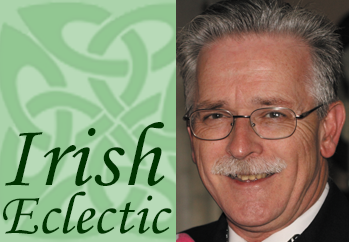Unlikely Bond Still Solidly Links Ireland and the Choctaw Nation
Opinion Advocates for ideas and draws conclusions based on the author/producer’s interpretation of facts and data.
 By Brian McGowan
By Brian McGowan
In 1847, the “Gorta Mór,” or “Great Hunger,” entered its third year, ravishing the countryside of Ireland, destroying the one crop – potatoes – that the bulk of the Irish peasantry survived on.
This crop failure, which began in 1845, was widespread throughout Europe. Only in Ireland would it reach the level of extreme crisis. There it would linger on until 1851, and send 1.5 million Irish to their graves, out of a population of 8.5 million. Another million would flee forever the land of their birth.
The cause, however – a blight with a fancy Latin name – was not the major culprit behind needless death and dispersion. English government indifference was the real cause, as officialdom dragged its feet in putting in place any effective relief plan.
England’s approach to Ireland’s difficulty was far different than other governments throughout Europe. France, Belgium, the German principalities, to name several, met the threat head-on. They implemented well-run relief programs, avoided mass starvation and saved many millions who might otherwise have perished, as they did in Ireland.
Into the void left by government nonchalance stepped several groups with a history of compassion toward the unfortunate. The Society of Friends, more commonly known as the Quakers, were prominent in these efforts. Various other private relief organizations did their best. While these efforts raised millions, a much smaller donation made by the Choctaw Indian Nation dramatically demonstrated how the bonds of compassion can unite distant lands.
Stripped in 1831 of their ancestral homelands in the southeastern United States, the Choctaws and a host of other tribes were forcibly uprooted and removed to what maps of the time called the “Great American Desert.” Sound familiar? It echoes the cry Cromwell and his minions shouted in the 1600s, as they pushed the native Irish further and further west from their homes, into the harsh hills and boglands of western Ireland. “To Hell or to Connacht!”
In the Choctaw’s case, Andrew Jackson was their Cromwell, and the resultant “Trail of Tears” remains an indelible black mark on how the U.S. has dealt with indigenous peoples.
A scant 16 years later, the impoverished Choctaws dug in their pockets to raise a donation for another battered group – the Famine Irish. The amount – $170, worth roughly $6,700 in today’s money – is of little consequence. It’s the thought that counts. But how did the Choctaws even know about the disaster?
There had already been a movement of Irish immigrants to our southern states in the early 1800s. Intermarriage was not uncommon. Inevitably, word had filtered across the Atlantic in the 1840s of tragic events taking place in Ireland. In response, the Choctaws rose to the challenge, gathered whatever resources they could and sent it off to Ireland to feed those who were starving in a land of plenty.
But wait, how could a “land of plenty” be in a state of famine? The sad truth is that Ireland produced, for export to England, enough food to feed its starving population many times over. What England feared most, as it became a highly industrialized nation with the bulk of its working class slaving in factories and mills, was any threat to that food supply, lest the masses might rise in revolt. So, during the famine, ships laden with all manner of foodstuffs sailed unabated, their cargoes keeping English millhands sated while the Irish starved.
The Choctaw gift was recognized at the time as an extraordinary gesture of humanity by an impoverished people, a view that remains in force today. And a shared loss forms a strong bond. The Choctaws and the Irish have maintained that bond. Top-level visits are routinely shared by Irish politicians and Choctaw tribal leaders. Joint commemorations abound, and support flows freely between the two nations.
Irish efforts to help the tribe during the COVID pandemic, and continued global humanitarian efforts in places like Somalia and elsewhere around the globe, see the Irish and the Choctaws aligned to bring relief anywhere the grim specter of starvation stalks the planet. That such tragedies continue to exist in a world of riches, a “planet of plenty,” should haunt us all.
Longtime Pleasantville resident Brian McGowan was born and raised in the Bronx, and is a second-, third- and fifth-generation Irish-American/Canadian, as his immigrant ancestors followed several paths to the New World. Reach him at brian.m.mcgowan1952@gmail.com. He is the author of three books: “Thunder at Noon,” about the Battle of Waterloo; “Love, Son John,” about World War II; and “Island Prize,” about the Revolutionary War in 1776 New York. All are available at Amazon.com.

Examiner Media – Keeping you informed with professionally-reported local news, features, and sports coverage.
